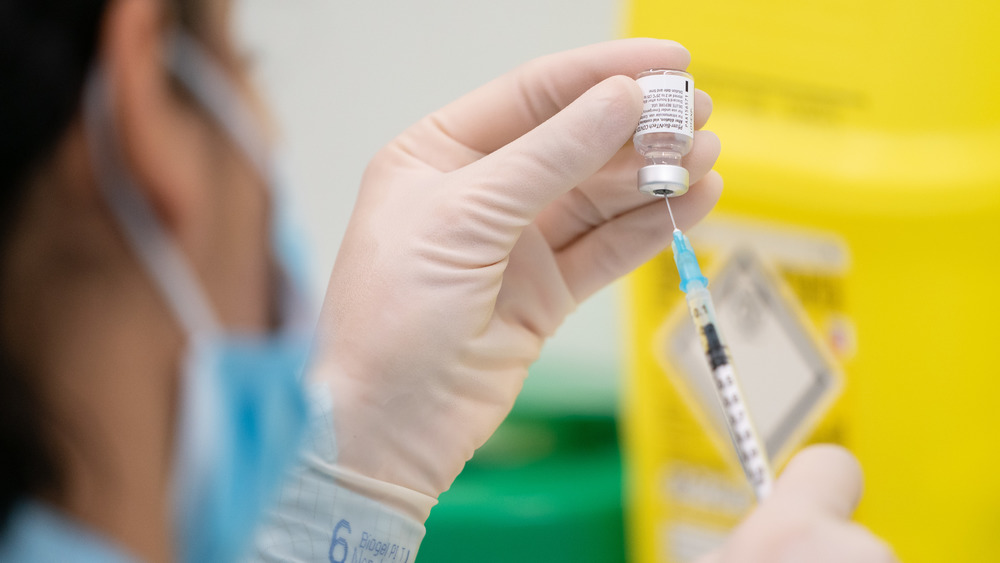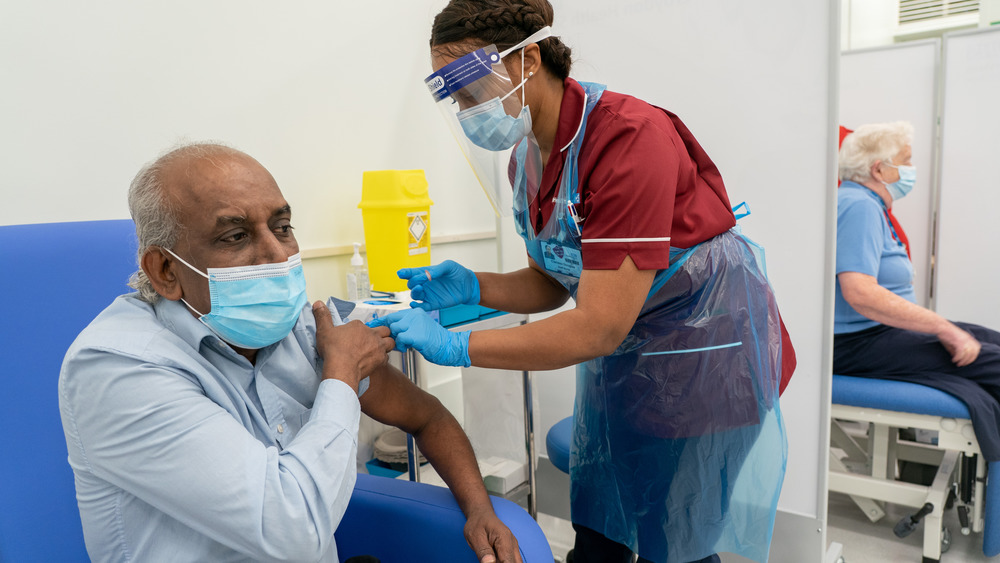What Those With Allergies Should Know About COVID-19 Vaccinations
The Pfizer/BioNTech vaccine for COVID-19 awaiting approval for use in the United States could cause an allergic reaction in people allergic to certain foods, medicines, or other vaccines, health officials say (via BBC). Officials in the United Kingdom, the first country where people are being inoculated with this vaccine, warned about the possible reaction after two health care workers there on Wednesday experienced symptoms the day after receiving the shot (via CNN).
Both workers were treated and recovering well, UK health officials said. The two had an anaphylactoid reaction, which can involve breathlessness, a skin rash, and lower blood pressure. The workers have a history of allergies and carry epinephrine pens with them, officials said. This type of anaphylactoid reaction is not the same as anaphylaxis, the BBC noted. Anaphylaxis is an acute allergic reaction that occurs within seconds or minutes and can be life-threatening, such as certain allergies to peanuts or bee stings, according to the Mayo Clinic.
Thousands of people are thought to have been vaccinated in the UK on Tuesday. After the allergic reaction, the UK's Medicines and Healthcare products Regulatory Agency "advised on a precautionary basis that people with a significant history of allergic reactions do not receive this vaccination," Stephen Powis, the national medical director for NHS England, said in a statement. Such warnings are common with new vaccines, Powis said. The regulatory agency also said that vaccines should be issued only in facilities "where resuscitation measures are available."
A handful of any vaccinations have severe allergic reactions, officials say
In the United States, one out of every 1.4 million doses of any vaccine has complications from a severe allergic reaction, said Dr. Paul Offit, director of the Vaccine Education Center at the Children's Hospital of Philadelphia. Instead of a "blanket recommendation" for people with allergies, however, he thought it might be wiser to determine what component of the vaccine had affected the UK workers.
The U.S. Centers for Disease Control and Prevention advises that people tell medical personnel if they have allergies before receiving any vaccine. The flu vaccine, for instance, carries CDC recommendations for people who have egg allergies. Most flu shots and the nasal spray flu vaccine contain a small amount of egg proteins because they are manufactured using egg-based technology (via CDC). Anyone whose history of severe allergic reactions to eggs involves symptoms worse than hives should be vaccinated in an inpatient or outpatient medical setting, including a clinic or a doctor's office, so a health care provider can recognize and treat any reaction, the CDC says.
Drug manufacturer Pfizer, based in New York City, and its partner, German company BioNTech, previously have said their vaccine can cause side effects similar to mild coronavirus symptoms, including exhaustion, headaches, and body aches; but they have no major safety concerns. The two and the Massachusetts-based biotechnology company Moderna are seeking "emergency use authorization" from the U.S. Food and Drug Administration to begin using their COVID-19 vaccines in the United States.


